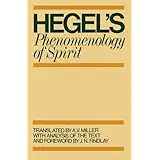section 12 final #1
Georg W.F. Hegel (1770-1831)
Hegel was born in Stuttgart, what Is now known as Germany, on Aug 27, 1770. For his education his father sent him to the University of Tubingen, where he studied philosophy and classics. While there, his father wished him to join a clergy but his fellow classmates, like Fried rich W.J. von Schelling, got him interested in forming his own philosophy. So once he graduated he became a private tutor, even though it went against his father's wishes. When his father died in 1800 Hegel was able to focus more on philosophy because of the small inheritance his father left to him. Hegel first started Building on Wants idealism and politics but later on he rejected his ideas along with many other popular philosophers theories as well. He stated that they were too restrictive. That was when he started dialect thinking which lead to "The Phenomenology of Spirit " his first big success. He then became a professor at Privatzent at University of Jena. In 1806 Hegel flees Jena during the invasion of Napoleon. Two year after fleeing Jena, Hegel became an instructor\headmaster at school in Nurnberg. He stayed there till 1815 and while he was there he got married to Marie Von Tucher. They had three children together but only two survived to adulthood, Karl and Immanuel. In 1816 je became a professor of philosophy at the University of Heidelberg. While he was teaching there he wrote "Encyclopedia of the Philosophical sciences" in 1817. This helped him get his next job at the University of Berlin where he was advanced to the position of chair of philosophy. And in 1829 he became the president of that university. He only kept that position for two year though because in 1831 on Nov. 14 he died of cholera.
Hegel was born in Stuttgart, what Is now known as Germany, on Aug 27, 1770. For his education his father sent him to the University of Tubingen, where he studied philosophy and classics. While there, his father wished him to join a clergy but his fellow classmates, like Fried rich W.J. von Schelling, got him interested in forming his own philosophy. So once he graduated he became a private tutor, even though it went against his father's wishes. When his father died in 1800 Hegel was able to focus more on philosophy because of the small inheritance his father left to him. Hegel first started Building on Wants idealism and politics but later on he rejected his ideas along with many other popular philosophers theories as well. He stated that they were too restrictive. That was when he started dialect thinking which lead to "The Phenomenology of Spirit " his first big success. He then became a professor at Privatzent at University of Jena. In 1806 Hegel flees Jena during the invasion of Napoleon. Two year after fleeing Jena, Hegel became an instructor\headmaster at school in Nurnberg. He stayed there till 1815 and while he was there he got married to Marie Von Tucher. They had three children together but only two survived to adulthood, Karl and Immanuel. In 1816 je became a professor of philosophy at the University of Heidelberg. While he was teaching there he wrote "Encyclopedia of the Philosophical sciences" in 1817. This helped him get his next job at the University of Berlin where he was advanced to the position of chair of philosophy. And in 1829 he became the president of that university. He only kept that position for two year though because in 1831 on Nov. 14 he died of cholera.
Installment 2

"The Phenomenology of Spirit" Chapters 1-4
Chapters 1-3
Chapter 4
Hegel starts by bringing in ideas about consciousness in general in this chapter. He believes that consciousness of "objects" and people or as he states "subjects" proves that we do have self awareness because the "subject" can perceive the "object". He uses the word "subject" to not only refer to the person, but as the person who is perceiving that other object. Later in the chapter Hegel went a step further to say that "subjects" are also "objects" to other "subjects". What he is trying to get at basically is that a subject can become aware of oneself by seeing him or her through another subjects prospective of them. Hegel tries to explain that consciousness is a struggle or on going battle between two individuals that are bound together as unequal BUT have the same dependent variable that holds them together. He makes an example of a bondsman and a servant that are unequal BUT both have the same dependent variable... the Lord. And sense the Lord is all powerful both the servant and the bondsman are "objects" not "subjects" in his eyes. So basically its just a battle of consciousness.
Installment 3
"The Phenomenology of Spirit" Chapters 5-8
Chapters 5-8
At the end of chapter 4 Hegel talks about "unhappy consciousness" that only happens to someone when they have to struggle for recognition from someone else to finally realize they are self-conscious subjects. Because of how Hegel understood dialectical thoughts this lead him to become a idealist when it cam to "reason". For him reason is how self-conscious ego struggles to have stance over objects and still be able to fend off threats from other self-conscious beings. This is when Hegel starts discussing Spirit. To Hegel spirit is where ethical reasoning takes place, laws and customs, and also where an individual consciousness can bloom. Hegel says religion is essentially to a spirit. He also talks about Absolute Knowledge is where science and philosophical investigations take place.
https://www.youtube.com/watch?v=MitDfWXcNm8
Video of Georg Hegel!!!!

Thank you for complying with my request to include earlier posts!
ReplyDeleteGreat job Sarah!! I enjoyed reading!! :)
ReplyDelete